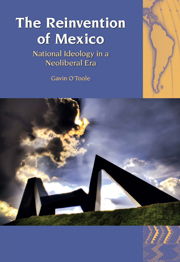Conclusion: The Fate of Mexican National Ideology
Summary
Examining the interaction between nationalist ideas and economic liberalism in Mexico allows us to consider the fate of national ideology in a period during which accelerated market reform eroded the social basis of the dominant source of legitimation in political culture, revolutionary nationalism. This book has approached such an objective empirically from within the principal theoretical debate in the study of nationalism: concerning its relationship with modernity. Mexico during the Salinas period offers a unique opportunity to examine the interaction between nationalist ideas and liberalism, the political philosophy that champions that paramount phenomenon of modernity – capitalism. An examination of the impact upon nationalist ideas of reforms justified in terms of economic liberalism can, in turn, shed light on the future of the national idea under the impact of modernizing forces. The relationship between nationalism and modernity has been explored by demonstrating how national ideology was reformed alongside the state in the Salinas period. To do this it has been necessary to identify, document and then explain changes in ideas that had a bearing upon nationalism in relation to the broader transformation of political economy.
When examined, the evidence speaks volumes about how national ideology remained of functional value as a legitimizing discourse to political elites pursuing reform of the state in order to ensure capitalist reproduction. The first section of this book demonstrated that nationalism formed part of the Salinas government's attempt to rebuild state legitimacy.
- Type
- Chapter
- Information
- The Reinvention of MexicoNational Ideology in a Neoliberal Era, pp. 223 - 232Publisher: Liverpool University PressPrint publication year: 2010

